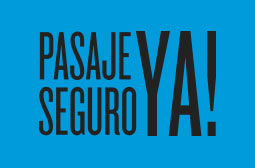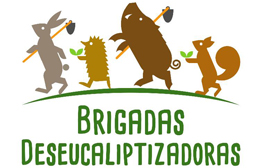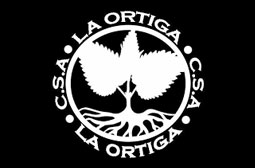This video has timestamped descriptions to allow viewers to jump to particular topics and sections. Links will open the video in YouTube.
Who are you and what’s your relationship with Pasaje Seguro (‘Safe Passage’ in English)? 0:18
How, when, and where was this citizen’s collective born? 0:47
What’s the legal form of Pasaje Seguro? 3:00
What media do you use to display your denouncements and demands? 3:40
How many people make up this citizen group? 5:30
Are there people who’ve migrated in the citizen’s group? 8:21
How do you function internally? 9:00
Have you created any protocol for assemblies for the people who come for the first time? 13:03
Patricia, you’re the facilitator of the group, where did you learn to facilitate? 14:31
Indirectly, you’re talking about facilitation as an exercise in caretaking. Does that way of understanding facilitation come to you from 15M, or from feminist study? 15:50
What other collectives or groups with aspirations or demands exist in the Spanish state? Do you work through a network with them? 17:28
For many collectives and projects (prior to 15M), 15M has represented a moment of reorganization, recognition, and strengthening. What did this moment signify for this working group? 20:10
In the web, you write “We’re a citizen’s working group formed by anonymous people who refuse to accept the disastrous role that the European Union and its states are taking on regarding refugees(…)” Can you explain why, from your point of view, the role taken on by the European Union regarding refugees is “disastrous”? 22:35
Elsewhere, it’s said that this citizens’ group completely rejects “the EU-Turkey Pact, internationally recognized as the ‘Pact of Shame,’ which violates international law protecting the right to asylum and refuge.” Can you explain the context of the signing of this agreement and its implications in the specific case of Spain? 32:58
Based on your own knowledge and experience, what are the main causes for requests for asylum and refuge by the people who ask for them in Spain? 35:05
Your work also includes demanding safe routes and a dignified welcome to people soliciting refuge and asylum. Can you tell us how the arrival process usually is for someone who comes to Cantabria in search of asylum? What realities do they find when they get to Cantabria? How is their process of integration? 38:05
Is Pasaje Seguro a tool facilitating these people’s integration and accompaniment, or does it center around political work? 40:50
It’s interesting that the defense of human rights has become an urgent issue of the welfare States, and yet it’s the NGOs or groups like this who take on the role of denouncing violation of the same. What has your relationship with the institutional environment been like up until now? 43:57
You denounce the port authority of Santander, could you explain the context of this denouncement? 46:48
What is the value of the media coverage that has come from this complaint? 53:29
From your experience and thinking of realities like the weapons trafficking or the causes for the search for refuge and asylum, do you think the people of Spain are well aware of these issues? 55:13
From your activity, I see that you work in the field of unregulated education in processes of unlearning stereotypes and cultural categories. Do you participate or collaborate with social and educational centers in the formation of these matters? 1:00:47
Do you have an archive of materials that can be consulted online? 1:07:47
How do you think your work has been received in Cantabria? 1:08:42
What you do is an unpaid job. How do you combine it with the rest of your life? 1:15:01
How do you keep up hope to motivate your work, and how do you deal with the impotence and political discontent of the majority? 1:20:40






